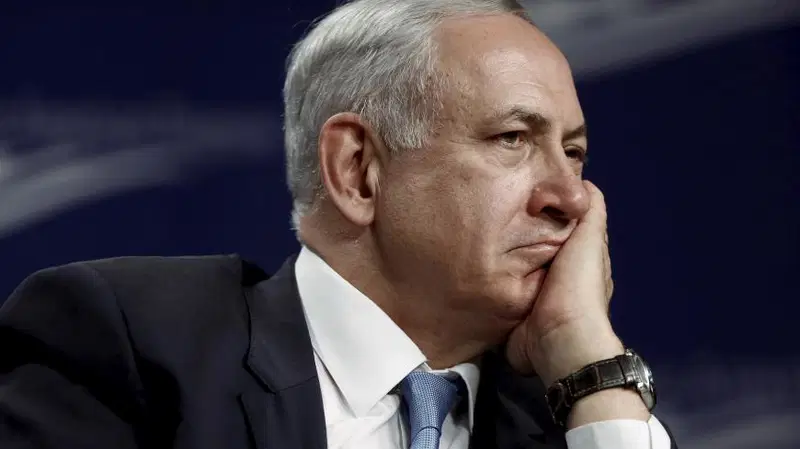Headline
African Immigrants Struggle To Pay Bills In UK As inflation Soars – Report

A new report has revealed that African immigrants in the United Kingdom are struggling to pay bills as they are most affected by the persistent rising cost of living crisis.
The report published on Wednesday by an African communications service community disclosed that many African residents in the UK suffer to afford basic needs such as food, housing and energy.
This has forced the African Diasporan community to seek financial support as the report said inflation upsets the economy.
With over 1,000 Africans surveyed, Robert Ekat, Lead Researcher, at BHM said, “The findings reveal the stark reality of the financial struggles faced by this community, with job security and monthly bills being the top concerns”.
“This report is critical as it highlights the impact of the cost of living crisis on African immigrants. It is a deliberately qualitative report with factual data to help us comprehend the practical impact of rising costs on individuals and communities,” adds BHM Founder, Ayeni Adekunle.
READ ALSO: Why I Was Absent At Tinubu’s Commissioning Of Rivers Projects – Tonye Cole
“It ultimately adds to the existing body of research on the impact of the cost of living crisis on different communities in the UK and we are enthusiastic that researchers, policymakers, and organisations will find the data useful in developing future policies and actions for the betterment of the African community.”
The report further said, “Almost 60% of those surveyed have turned to family for financial support in recent times, while 44.5% admit to borrowing to pay for everyday needs. As the crisis bites deeper, several participants say they have had to cut down on essentials to survive.”
According to the report, at least 28% of respondents in the African expatriate community say they struggle to afford gas monthly, 69.4% plan to reduce the use of power, and 47% of participants have had to miss meals so they could pay bills.
The emigration of Africans to the UK has seen an enormous rise over the past year. According to the University of Oxford’s Migration Observatory, net migration was unusually high in 2022 as rises in temporary work and study migration post-pandemic have contributed to the surge.
Despite significant contributions to the UK economy, the report showed that 84% of the respondents in the African immigrant community do not claim any form of financial support from the UK government. This is a clear contrast compared to other groups like citizens of the EU, European Economic Area (EEA), Switzerland and the UK who have access to benefits like Universal Credit, Jobseeker’s Allowance (JSA), Employment and Support Allowance (ESA) to name a few.
READ ALSO: Tinubu’s Visit: Shehu Sani Knocks Wike Over Public Holiday
About 48% of respondents revealed they feel worse off than they were a year ago. The African community’s experiences revolve around critical challenges and concerns including lack of job security, unaffordable housing, and mounting debt.
Since the start of the pandemic, at least 25% of respondents have had to opt out of their workplace pension, risking retirement security. The grim situation has necessitated an urgent need for attention, which has informed BHM UK’s research.
Back home in their native countries, many African diasporans are pressured by the black tax.
According to the report, Aishat, a 36-year-old store manager, said, “I am worried that after a while, I won’t be able to send money back home to my family and take care of my most mundane needs.”
Over 77% of participants in the report revealed family and friends expect some support, thereby intensifying the desperation for survival. This was reflected in the admittance by almost 59% of respondents that the current economic situation in the UK is affecting their mental and physical health.
READ ALSO: Lagos Demolishes Shanties On Lekki Coastal Road
Enitan Kehinde, General Manager, BHM UK, said, “We are delighted to inform public discourse and help raise awareness about the economic and psychological issues facing Africans in the UK. This is necessary for us to demonstrate increased understanding, empathy and support for these individuals and communities and to inspire practicable solutions.”
With many Africans seeking to migrate to the UK in the coming months, BHM UK’s report on the cost of living crisis critically expounds on the experiences of African expatriates and the interventions to embark upon, especially by government and organisations targeted at the African community.
It’s important for the UK to provide some support to Africans. “Apart from school fees paid by immigrants to British schools, the UK gains from Visa Fees, NHS payments, Rent, Economic productivity, Income taxes, etc.,” a report by SBM Intelligence, an Africa-focused geopolitical research and strategic communications firm states.
Headline
Netanyahu Asks Israeli President For Pardon From Corruption Charges

Israeli Prime Minister, Benjamin Netanyahu, has asked the country’s president for a pardon in his long-running corruption case, saying the criminal proceedings are hindering his ability to govern and that ending the trial would benefit the nation.
Netanyahu, Israel’s longest-serving prime minister, has denied the bribery, fraud and breach of trust charges.
His lawyers told the president’s office that he still believes the legal process will eventually lead to a complete acquittal.
READ ALSO:Israeli PM Netanyahu Back In Court For Graft Trial
“My lawyers sent a request for pardon to the president of the country today. I expect that anyone who wishes for the good of the country support this step,” Netanyahu said in a brief video statement released by his Likud party.
The prime minister, who has been on trial for five years, has not admitted guilt, and neither have his lawyers. Opposition leader Yair Lapid said Netanyahu should not receive a pardon unless he admits wrongdoing, expresses remorse and immediately withdraws from political life.
Pardons in Israel are usually granted only after a conviction, but Netanyahu’s lawyers argued the president can step in when public interest is at stake, saying intervention could help heal national divisions and promote unity.
READ ALSO:Netanyahu’s Plane Takes Unusual Route To UN Summit
President Isaac Herzog’s office described the request as “extraordinary” with “significant implications”. His office said the president “will responsibly and sincerely consider the request” after receiving the necessary opinions.
United States President, Donald Trump, recently wrote to Herzog urging him to consider approving the pardon, describing the case against Netanyahu as “a political, unjustified prosecution”.
Herzog’s office said the request will be sent to the justice ministry’s pardons department to gather assessments that will be forwarded to the president’s legal adviser, who will prepare a recommendation.
(Reuters)
Headline
US: Four Killed, 10 Others Wounded In California Shooting

Four people were confirmed dead and 10 others injured after a shooting at a family gathering in California, United States on Saturday night, according to US police, who described the attack as a “targeted incident.”
The incident occurred inside a banquet hall in Stockton, northeast of San Francisco, shortly before 6:00 pm, spokesperson for the San Joaquin County Sheriff’s Office, Heather Brent, told reporters during a news briefing.
Brent said the victims, ranging from “juveniles to adults,” were rushed to nearby hospitals, noting that details about the shooting remained limited.
READ ALSO:FULL LIST: US To Review Green Cards From 19 ‘Countries Of Concern’ After Washington Shooting
“What we have confirmed at this time is that there was a banquet hall where a family was celebrating. We have 14 victims of this shooting. Four of those are deceased,” Brent said.
“Early indications suggest that this may be a targeted incident. Investigators are exploring all possibilities at this time.”
The sheriff’s office posted on social media that detectives were “working to determine the circumstances leading up to this tragedy.”
READ ALSO:Police Begin Trial Of Officer In Fatal Shooting Of Enugu Musician
“We are urging anyone with information, video footage, or who may have witnessed any part of this incident to contact the San Joaquin County Sheriff’s Office immediately,” the post added.
Authorities said no suspect had been identified at the time of the report.
California Governor Gavin Newsom was briefed on the development, his office said in a social media statement.
Data from the Gun Violence Archive shows there have been 504 mass shootings in the United States so far this year, including the Stockton attack.
(AFP)
Headline
FULL LIST: US To Review Green Cards From 19 ‘Countries Of Concern’ After Washington Shooting

The Trump administration announced on Thursday that it will review the immigration status of all permanent residents, or “Green Card” holders, from Afghanistan and 18 other countries following the attack on National Guard troops in Washington, D.C.
U.S. officials identified the suspect in Wednesday’s shooting as a 29-year-old Afghan national who previously worked alongside American forces in Afghanistan.
The individual was granted asylum earlier this year, not permanent residency, according to AfghanEvac, an organisation that assists Afghans resettled in the United States after the Taliban takeover in 2021.
“I have directed a full-scale, rigorous reexamination of every Green Card for every alien from every country of concern,” said Joseph Edlow, director of U.S. Citizenship and Immigration Services (USCIS), on X.
READ ALSO:FG To Unveil Digital Single Travel Emergency Passport January
The review follows a June executive order from President Trump classifying 19 countries as “of Identified Concern.”
The order banned entry for nearly all nationals from 12 countries, including Afghanistan. The full list of these countries is:
Afghanistan
Myanmar
Chad
Congo-Brazzaville
Equatorial Guinea
Eritrea
Haiti
READ ALSO:Coup: ECOWAS Suspends Guinea-Bissau
Iran
Libya
Somalia
Sudan
Yemen
A partial travel ban applies to seven additional countries, though some temporary work visas remain allowed: Burundi, Cuba, Laos, Sierra Leone, Togo, Turkmenistan, and Venezuela.

 News5 days ago
News5 days agoHow To Access Your Pension Before Retirement

 News4 days ago
News4 days agoBREAKING: Tinubu Declares Nationwide Security Emergency, Orders Armed Forces To Recruit More Personnel

 Metro3 days ago
Metro3 days agoJUST IN: One Dead As Ngige Escapes Assassination

 Headline5 days ago
Headline5 days agoCoup In Guinea-Bissau? Soldiers Deployed Near Presidential Palace After Gunfire

 News3 days ago
News3 days agoGuinea-Bissau Coup: FG Gives Update On Ex-President Jonathan

 News4 days ago
News4 days agoTinubu Appoints Non-Career Ambassadors For US, UK, France

 News4 days ago
News4 days agoOkpebholo Fires EDOGIS Managing Director

 Metro4 days ago
Metro4 days agoBREAKING: Bandits Abduct Teenage Boy, Six Girls From FCT Community

 Metro4 days ago
Metro4 days agoTrain Attack: Terrorist Leader Gave Mamu N50m From Ransom — DSS Operative

 News5 days ago
News5 days agoCourt Issues Arrest Warrant For Miss Universe Co-owner


















